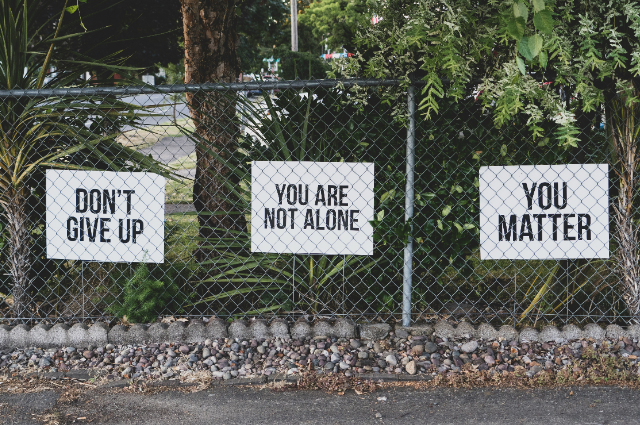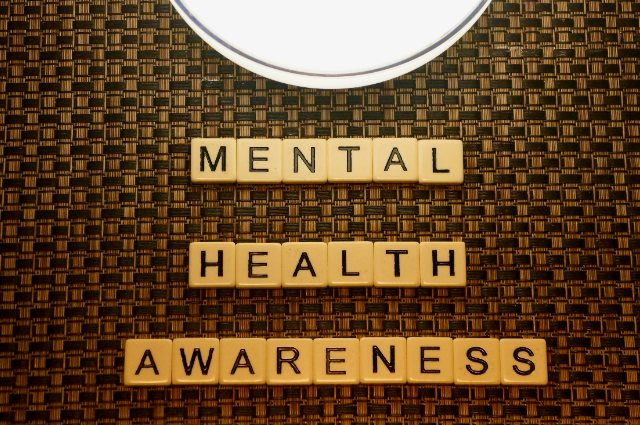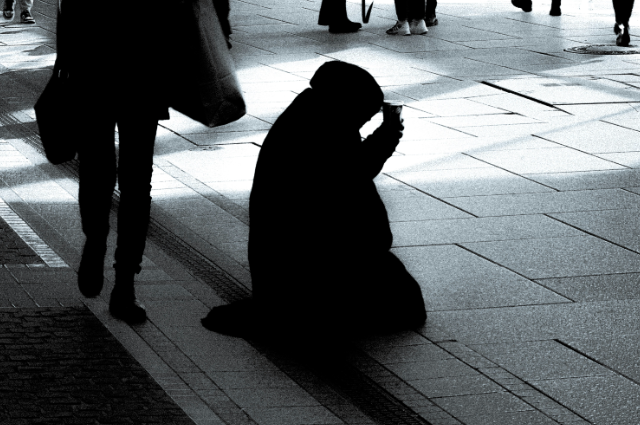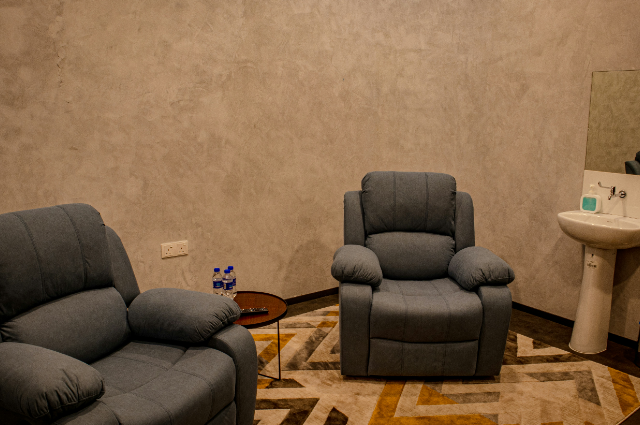
Photo by Dan Meyers on Unsplash
More people are talking about mental health awareness today than ever before. Issues like anxiety, depression, and other mental health struggles are no longer hidden away. Schools, workplaces, and even social media platforms are encouraging discussions about mental wellbeing. But why is this happening? And why does it matter?
Mental health influences our thoughts, emotions, and behaviors. It impacts our relationships, work performance, and ability to handle stress. Without good mental health, daily tasks can feel overwhelming, and people may struggle to find joy in life. Despite this, mental health issues have often been ignored or misunderstood. In many societies, discussing mental health awareness was once considered unnecessary, or worse, shameful. Thankfully, this is changing.

Governments, health professionals, and communities are now pushing for better education on mental health. The goal is to make sure people recognize the signs of mental distress, know where to get help, and feel comfortable seeking support. The more we talk about mental health, the more we can remove the stigma and help those in need.
This article will explore how mental health awareness has changed over time, why it's important, and what we can do to keep the conversation going.
Why Is Mental Health Awareness Important?
According to the World Health Organization (WHO), one in eight people worldwide lives with a mental health condition. However, millions do not receive proper treatment due to a lack of awareness, fear of judgment, or financial barriers.
When people understand mental health, they are more likely to seek support and encourage others to do the same. Early intervention is key. The Mental Health Foundation explains that early recognition of symptoms leads to timely psychological counseling, reducing the risk of severe mental illness.

Mental health education also helps in reducing stigma. Many people believe that conditions like anxiety and depression are simply signs of weakness. This mindset prevents people from reaching out for help. By spreading awareness, we can change how society views mental health and create a more supportive environment for those who need help.
How Mental Health Awareness Has Changed Over Time
Years ago, mental health was rarely discussed. Many people with conditions like depression or anxiety suffered in silence. In some cultures, mental illness was even seen as a personal failing rather than a medical condition.

Over the last few decades, awareness has improved thanks to research, media coverage, and advocacy. The COVID-19 pandemic played a major role in shifting how people see mental health. According to ADAMH Franklin County, the pandemic led to a rise in mental health issues and encouraged discussions about stress management, therapy, and self-care. More people started seeking personalized treatment options such as online therapy and mental health apps.
A study from PMC suggests that the way society views mental illness has also changed. Instead of being seen as a rare condition, mental health struggles are now recognized as common experiences that many people go through. The Royal College of Psychiatrists highlights that rising economic and social pressures have also led to an increase in mental health cases, making awareness more crucial than ever.
Key Initiatives Driving Awareness
Mental health awareness has come a long way, thanks to public education campaigns, advocacy efforts, and policy changes. These initiatives continue to push the conversation forward:
Mental Health Awareness Month
Held in May, this campaign highlights the importance of mental wellbeing. According to Brown University Health, this event encourages people to share their experiences, promote understanding, and seek help when needed.
World Mental Health Day
Observed on October 10th, this day is promoted by the WHO to spread awareness about mental health. It focuses on education, policy changes, and global efforts to improve mental health care.
Public Education Campaigns
Organizations like the Mental Health Foundation work to spread knowledge and encourage people to seek treatment and emotional support.
Sitar for Mental Health
Founded in 2021 by Rishab, this initiative uses Indian classical music to promote emotional wellbeing. It integrates music therapy with mindfulness, offering a holistic approach to managing stress and improving mental clarity. According to the Times of India, this method has gained popularity as an alternative form of therapy.
Challenges in Addressing Mental Health Issues
Despite increased awareness, many people still struggle to access proper support due to stigma, lack of resources, and high treatment costs. These barriers make it harder for individuals to seek the help they need:
Limited Access to Treatment
Many countries lack mental health professionals. BW Wellbeing World reports that India has only one psychiatrist per 100,000 people. The lack of access leaves many people struggling without proper therapies or psychological counseling.
Social & Cultural Stigma
In many societies and cultures, seeking mental health support is still seen as a weakness. The Press Information Bureau states that while awareness campaigns are helping, deep-rooted societal beliefs still prevent people from seeking help.

The Impact of Digital Life
Excessive social media use has been linked to increased anxiety and stress, particularly among young people. According to Frontiers Digital Health, while technology offers new mental health tools, it also presents challenges in maintaining emotional wellbeing.
Gender-Specific Challenges
Women often face additional mental health challenges due to hormonal shifts, societal expectations, and work-life pressures. McLean Hospital explains that conditions like postpartum depression and anxiety are often overlooked.
How Can Digital Tools Improve Mental Health Support?
Online therapy, mental health apps, and AI-driven tools are making support more accessible than ever. While they can’t replace traditional therapies, they offer new ways to bridge the treatment gap:
- Mental Health Apps – Mobile applications now offer guided meditation, mood tracking, and access to licensed therapists. These tools provide convenience for those who may not have access to in-person psychological counseling.

- Online Therapy – Virtual therapy platforms allow people to connect with mental health professionals remotely. This makes it easier for individuals in remote areas or with tight schedules to receive proper treatment.
- Wearable Devices & AI Chatbots – Fitness trackers now include stress monitoring and relaxation features. AI chatbots also offer instant mental health support by providing coping strategies and mood analysis.
Steps to Improve Mental Health Awareness
Raising awareness is just the first step. Real progress comes from improving education, increasing access to counseling, and normalizing mental health discussions in everyday life:
- Encouraging Open Conversations – Talking about mental health at home, in schools, and at workplaces can help remove the stigma and create a more supportive environment.
- Education & Training – Schools should introduce mental health awareness programs to help students recognize early warning signs and develop emotional resilience.
- Government & Policy Support – Governments need to increase funding for mental health services and provide better access to treatment in rural and underserved areas.
- Workplace Mental Health Programs – Employers should implement mental wellness initiatives, including stress management workshops and confidential counseling services.

- Learn About Mental Health Resources – Websites like Mental Health Foundation, National Institute of Mental Health (NIMH), Mind, Mental Health America (MHA), World Health Organization (WHO) – Mental Health, MentalHealth.gov, and Verywell Mind provide valuable information.
- Advocate for Better Policies – Support policies that make mental health services more affordable and accessible.
- Take Care of Your Own Mental Health – Practice self-care, seek help when needed, and build a strong support system.
Final Words
Thus, as a conclusion, we can say that the rise of mental health awareness among students, employees, and the general public is a positive step toward a healthier society. However, raising awareness is just the beginning. Reducing stigma, increasing access to treatment, and expanding public education campaigns are all necessary to ensure people get the help they need.
By encouraging open conversations, investing in mental health services, and educating people about early intervention, we can create a world where mental well-being is treated with the same importance as physical health. If you or someone you know is struggling, don’t hesitate to seek support. Mental health awareness is vital, and help is always available.
